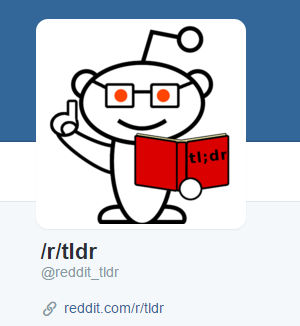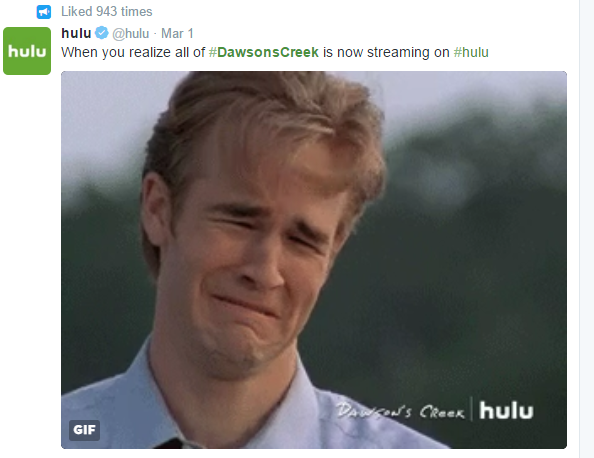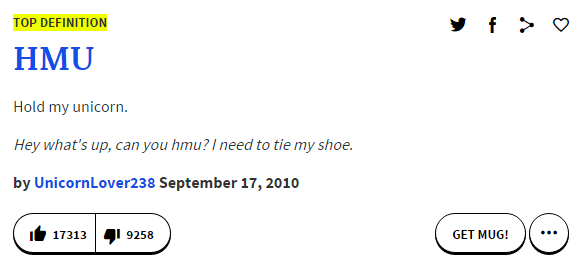Internet Language: Internet Slang
The internet may have been released to the public back in 1991, but it didn’t achieve popularity, or become "normalised" as part of our everyday lives, until somewhere between 1996 and 2001.
Since then, it has shaped and moulded our existence, as we have crafted it to fit our needs; it’s sort of like a symbiotic relationship. But with around 6% of the world’s population declaring themselves as addicted, perhaps a fairer classification of our reliance on the internet should be dependent/co-dependent. It’s either that, or Cyberdyne’s actually a bigger threat to us than Facebook, and we’re all blissfully ignorant as Skynet takes us over quietly, one Tweet at a time.
What are you looking so smug about? via Youtube / Youtube
The internet really has leached into our day to day language in ways we probably don’t even think about anymore: who doesn’t say ‘I’m gonna Google it’ when we need to look something up, for example?
With that in mind, let’s take a look at some of the most common internet slang out there, and see if we can broaden your (virtual) horizons a little.
TL:DR
If you’re a fan of a ranter, this little abbreviation is something you’re probably already familiar with, even if you’re not entirely sure what it means yet. Too Long: Didn’t Read, means that the post you are currently viewing is potentially longer than your attention span, and the entire piece of text can probably be summarised in under five words. Or that the reader got bored halfway through, and has no idea what the post is actually about.
alsdfjowijfdfmsdlfe
This is a term of approval, and can be recreated with any such combination of letters on your keyboard: think of it like a typed glomp. It is to express extreme excitement at something you have just read; be it an epic, canonically correct fanfic or a particularly witty burn on Twitter, your random key selection will show the author of said piece just how thrilled you are to be witnessing their words in action.
SMH
It’s interesting that with the internet, slang has become interchangeable with acronym for so many words and phrases. This one is no different: SMH is Shake My Head, and it means that the reader has found something so unbelievably stupid that they just can’t believe it, and therefore, are shaking their heads in disbelief.
Facepalm
While on the subject of this ‘extreme stupidity’ thing; to facepalm is to react with such horror to someone’s idiocy that you slap yourself hard in the face with your palm, with that satisfying splatting sound. It can be used to express utter dismay, or disappointment, or even blatant disapproval. And talking of disapproval, let’s add the Headdesk to the mix. The headdesk is the ultimate facepalm, when supreme stupidity leaves you smashing your head into your desk and crying for the loss of faith in all humanity (crying is optional).
IMO/IMHO
In My Opinion/In My Humble Opinion has been around a while now, and is kind of a granddaddy of internet slang. It’s a way of saying, hey there, lovely reader, what I’m about to say is my own, personal opinion, and I do not proclaim to be saying anything profound (although possibly, I am). This short little word is often the spark for riotous internet debates/snarling matches, whether the writer is intending to be inflammatory or not.
HIFW/MFW/MRW/MIRL
(How I Felt When/My Face When/My Reaction When/Me In Real Life)
Because these are all quite interchangeable, it’s easier to present them all together in a neat little bundle of explanation. These acronyms will be found littering all your favourite social media feeds, coupled with a GIF or screenshot of **insert character** pulling a particular face (essential for MFW), or some other reaction along with a funny caption that summarises a mood for something that is trending at a particular time. Like Dawson here. Hey, Dawson, it’s not all that bad, we promise!
NSFW
One of this author’s personal favourites since they spend far too much of their free time on AO3, this one means Not Safe For Work. It can be anything from fanart of your favourite OTP in an angelic embrace (for the SPNers out there… you know who you are, and you know what we mean…), to rude vegetables doing unspeakable things that will make your prude of a boss blush if you’re lucky/unlucky enough to have one of those. Essentially it means: open with caution.
TBT
Throwback Thursday is an opportunity to get on the nostalgia posting bandwagon and increase your hit rate or number of likes by dredging up images from your past. Common initially on Instagram, this piece of internet slang has become one of the backbones of the social media way of life. A related acronym that is seen all over Twitter is the #FF or #FollowFriday, and is basically a shout out to any follower profiles that you really appreciate and want other followers to hear about. Hint hint…
404 - page not found
This one’s probably one of the newer acronyms out there, but it makes us giggle a lot. When you get an error message that tells you your favourite site is not loading because either the link is broken or a page cannot be reached on the server, this is the message you commonly get. But in slangland, it means the writer of said text is clueless, and doesn’t understand what you have said, or what is going on.
HBU
This is the lazy way of getting someone else’s opinion. How about you is usually written following your own lengthy soapbox spiel (or short one, depending on how fast you type), when you want to gauge what your audience/fellow messenger is thinking. It is not to be confused in any way with HMU, which is hit me up, and means I’m bored and have nothing to do; provide me with entertainment. Or, according to one user of Urban Dictionary, means Hold My Unicorn. But of course.
IRL
Finally, because many internet users often forget this, In Real Life means there’s another world out there beyond the screen you’re currently looking at. And real people too, if you like that sort of thing.
Learning a new language? Check out our free placement test to see how your level measures up!
In the dinosaur age of phone technology when you had to really work for your letters (remember those words beginning with an S that you needed to press a 7 four times for to even start?), abbreviations and acronyms were the norm.
But with full QWERTY keyboard apps literally available at the tips of your fingers now, perhaps it’s a surprise that those same abbreviations are still viral in use today. Or maybe it’s just reflective of a lifetime spent online on our phones, and that has carried over to our actual keyboards as well. It’s not the death of a language; it’s evolution before our very eyes!
Next week we’ll continue our look at internet language by delving into the world of the emoji.







